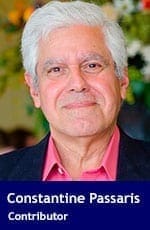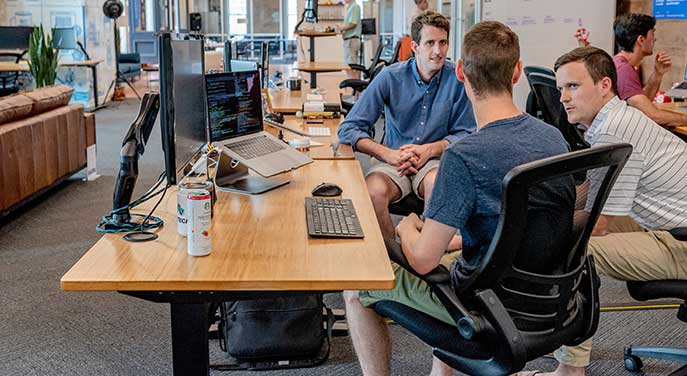 The first month of a new year is named January after the Roman god Janus, who had two faces – one looking backward and the other looking forward. Janus illustrates humanity’s ambition that the first month of the new year is a time to take stock of the past and make plans for the future.
The first month of a new year is named January after the Roman god Janus, who had two faces – one looking backward and the other looking forward. Janus illustrates humanity’s ambition that the first month of the new year is a time to take stock of the past and make plans for the future.
It’s time to take stock of Canada’s most valuable economic asset: our human capital.
Human capital describes our educational accomplishments, workplace skills and technical competencies. The word capital indicates that all those expenditures made to create human capital are an investment that will contribute to future economic benefits and dividends. The allocation of human and financial resources toward creating human capital is an investment rather than a transient cost.
The concept of human capital was first introduced in the 1960s by two American economists, Gary Becker and Theodore Schultz, who pointed out that education and training enhanced productivity in the workplace.
More recently – because of structural changes in the economic landscape, the introduction of new products and services, and the evolution of the workplace layout – the concept of human capital has expanded. The new definition embraces educational attainment, job-related skills, work experience, technical competencies, global mindset, entrepreneurial thinking, emotional intelligence, an innovative disposition, positive work habits, self-improvement, problem-solving and individual initiative.
All those attributes of human capital directly impact productivity in the workplace and, by extension, in growing the economy.
We need to acknowledge that Canada’s economy has transitioned from the resources under our feet to the resources between our ears. Our national economy is now empowered by the strategic deployment of human resources and human capital.
The 21st century defines human resources and human capital as the centrepiece and driver of economic growth, development and prosperity. So realigning for the new economy should start by articulating a bold vision for the foundational role of human capital. Next, we should develop a purposeful, actionable plan that facilitates the acquisition of the educational requirements and job-specific skills for economic success. Third, we need a focused strategy that positions our working-age citizens for seamless integration into the new global economy.
This isn’t a job for government or the private sector alone, nor is it a solitary initiative by our educational institutions. This is a collective responsibility that requires a co-ordinated and sustained effort. It requires effort from the private sector, unionized workers, the government, the social and volunteer sectors, as well as our leading creators of human capital such as universities and colleges. Everyone has an important role to play and shoulders the responsibility for the success of this mission.
Human capital is now a vital cog in the modern economy by Robert McGarvey
The modern recipe for economic success isn’t about adapting to change – it’s about leading it. Every economic sector should adopt the mindset that constant and rapid change is the new normal. The information technology sector has developed a guiding principle that’s encapsulated in the colloquial idiom “you snooze, you lose.” Embracing a mindset that we’re in a comfortable place and we don’t need change is a journey to failure.
In realigning our workforce for rewarding careers, we need to start by refreshing the core curriculum taught to young people in post-secondary institutions. Static education must morph into lifelong learning.
And those already in the workforce will periodically need new and improved skills to produce new products and services.
Four structural disruptions will impact Canada’s labour market:
- the digitalization of the workplace;
- the demographic shifts that are creating labour shortages;
- structural changes that are triggering supply-chain disruptions;
- technological advances such as automation, robotic-assisted production and artificial intelligence.
We must realign our human capital with the realities of the new global economy. We have a responsibility to provide young people with the necessary human capital to compete effectively – among themselves for job vacancies and, more importantly, against their imminent displacement by automation and artificial intelligence.
Dr. Constantine Passaris is a Professor of Economics at the University of New Brunswick and a recipient of the Order of New Brunswick.
Constantine is a Troy Media contributor. For interview requests, click here.
The opinions expressed by our columnists and contributors are theirs alone and do not inherently or expressly reflect the views of our publication.
© Troy Media
Troy Media is an editorial content provider to media outlets and its own hosted community news outlets across Canada.


